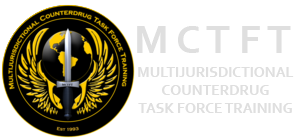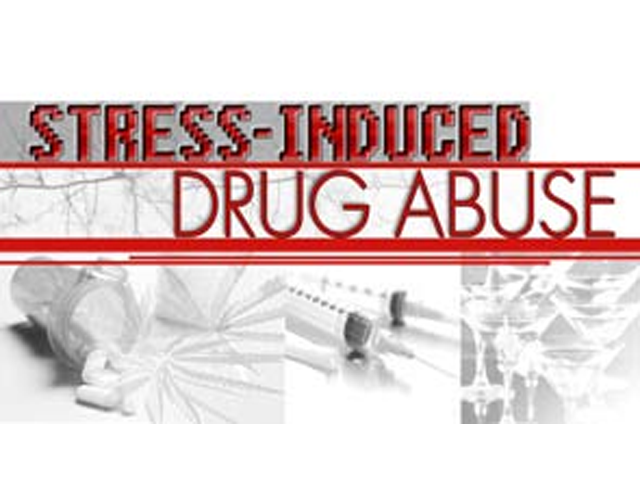During this hour-long broadcast, learn why stress often leads to substance abuse and how the brain responds. See how rates of alcohol and drug abuse increase after traumatic events like military service, terrorist attacks, and natural disasters. Hear first-hand how many people struggling with the aftermath of Hurricane Katrina are looking for stress relief, often in dangerous ways. Find out how to identify who is at risk and see what treatment options work.
Learning Objectives:
- Learn how the brain responds to stress
- See how stress and drug/alcohol abuse are often linked
- Find out how rates of alcohol and drug abuse often increase after traumatic events
- Hear what treatment options provide the best outcomes
Originally Aired: March 29, 2007
Host & Panelists
Mary Elizabeth Elliott
(Host) Vice President, Communications and Membership, CADCA
Dr. Nora Volkow
Director, National Institute on Drug Abuse, NIDA
Nora D. Volkow, M.D., was appointed Director of the National Institute on Drug Abuse (NIDA) in May 2003. She is recognized as one of the world’s leading experts on drug addiction and brain imaging.
Dr. Volkow’s work has been pivotal in demonstrating that drug addiction is a disease of the brain. She pioneered the use of brain imaging to investigate the toxic effects of drugs and the effects of drugs responsible for their addictive properties in the human brain. In addition, she has made important contributions to the neurobiology of obesity, to the neurobiology of the behavioral changes that occur with aging, and to the treatment of ADHD.
Dr. Volkow was born in Mexico, attended the Modern American School, and earned her medical degree from the National University of Mexico in Mexico City where she earned the Laughlin Fellowship Award as one of the 10 Outstanding Psychiatric where she received the Premio Robins award for best medical student of her generation. Her psychiatric residency was at New York University Residents in the USA.
Bert Bauer
Pathways New Learning Center, Atlanta, GA
Bert Bauer is a licensed clinical social worker. He is currently providing family services to emotionally and physically vulnerable parents and children. Bert received his graduate training at Atlanta University (now Clark Atlanta University) in the late seventies. His clinical training came with his 20 years of work with Emory-Grady Department of Psychiatry Atlanta Georgia a joint training program between the Emory School of Medicine and Henry Grady Memorial Hospital in Atlanta, Georgia.
LTC Bauer recently retired from the Army Reserve Command after forty years of military active and reserve duty. Since 1990 he has been mobilized two times, in 1990 for Desert Storm by providing behavior health services for mobilizing and de-mobilized Army Reserve and National Guard service members at Camp Shelby, MS, and post-9/11 he was mobilized for two years serving in the capacity of a senior behavior health clinician for the Army Central Command at Camp Doha Kuwait providing primary behavioral health services to the military task forces stationed in Afghanistan and Kuwait. 2002 and 2003 he was the mental health operations planning officer with the Coalition Forces Land Component Command in Kuwait for the invasion of Iraq.
During times of being a “weekend warrior” at home, he has been the Social Work Consultant for the 3rd Medical Command. His primary mission was the development and implementation of behavioral health policy for the medical component of the U.S. Army Reserve Command.
Edward Carlson
Executive Director, Odyssey House Louisiana
Edward C. Carlson became executive director of Odyssey House Louisiana, Inc. (OHL) in January 2005, bringing nearly 20 years experience in human services and substance abuse treatment to the position.
Prior to joining OHL, Ed was the substance abuse program officer for the Charles and Helen Schwab Foundation in San Mateo, CA. He also oversaw the research and development of The Need to Invest in Adolescent Treatment, a report and series of policy recommendations for the California State Legislature. The report documented the crisis state of substance abuse treatment for children and teens in California with less than 10% of adolescents who need treatment receiving services. Carlson also served on the advisory committee to the Little Hoover Commission in the development of the report For Our Health & Safety: Joining Forces to Defeat Addiction, which urged California’s state leaders to develop a strategy to reduce the cost and suffering of drug and alcohol addiction and expand the quality and quantity of treatment.
Ed also has significant experience in correctional facility substance abuse treatment and has opened over 20 treatment programs.
Ed is a graduate of John F. Kennedy University where he received a B.A. in psychology and an M.A. in clinical psychology with a concentration in substance abuse, criminal justice population and cognitive behavioral science. He is a licensed marriage and family therapist (MFT) and a member of the American Psychological Association, the National Association of Forensic Counselors and the National Association of Drug Court Professionals. He is a native of New Orleans, where he currently resides.
Kay Doughty
Vice President, Family and Community Services, Operation PAR, Pinellas Park, FL
Kay Doughty has spent 23 years working in the field of Substance Abuse as a supervisor of prevention, intervention and treatment programs, including Methadone Maintenance. Doughty is a Masters level Certified Addiction Prevention Professional and a Certified Addiction Professional. She is a consultant for the State of Florida for Treatment Improvement, a consultant for Johnson, Bassin and Shaw for Substance Abuse Accreditation. Doughty serves as Chair of the State Prevention Advisory Council and is Secretary of the Florida Certification Board. Kay was named as Professional of the Year by the Florida School of Addictions in 2000 and is listed in the Who’s Who of Prevention Leaders in Florida.
John King
Executive Director, Council on Alcohol and Drug Abuse for Greater New Orleans
John King has worked in the field of alcohol/drug abuse prevention and treatment since 1972. King has a BA in psychology from Baylor University, a Master of Divinity from Southwestern Seminary and has done post-graduate work in alcohol/drug studies at the University of Utah, the St. Louis College of Pharmacy and the University of North Carolina-Wilmington. He is a Certified Substance Abuse Counselor and currently serves as Executive Director of CADA and teaches as an adjunct professor at Our Lady of Holy Cross College, in New Orleans, LA.
King began the Missouri Teen Institute on Substance Abuse Prevention and was instrumental in forming the National Association of Teen Institutes. Also, as an accomplished author, he has written five books and numerous articles on drug abuse and prevention.
William Shoemaker, PhD.
Associate Professor of Psychiatry University of Connecticut
Dr. Shoemaker has many years of experience researching the effects of alcohol and other drugs of abuse on the brain. These effects are both short term (acute toxicity) and long-term (sometimes neurodegeneration). Of particular interest to him is how occasional use of drugs or alcohol develops, in some individuals, into addiction and alcoholism. His expertise is not in treatment, but rather on the underlying brain mechanisms that relate to stress, drug-seeking behavior and addiction.

